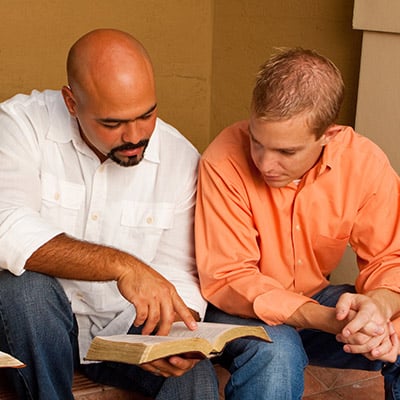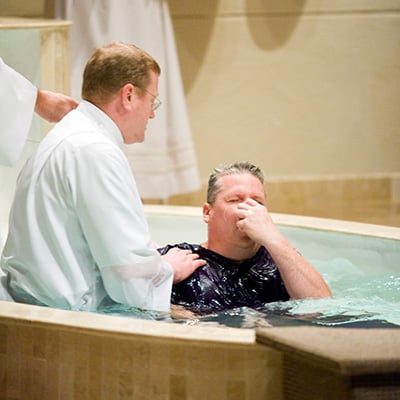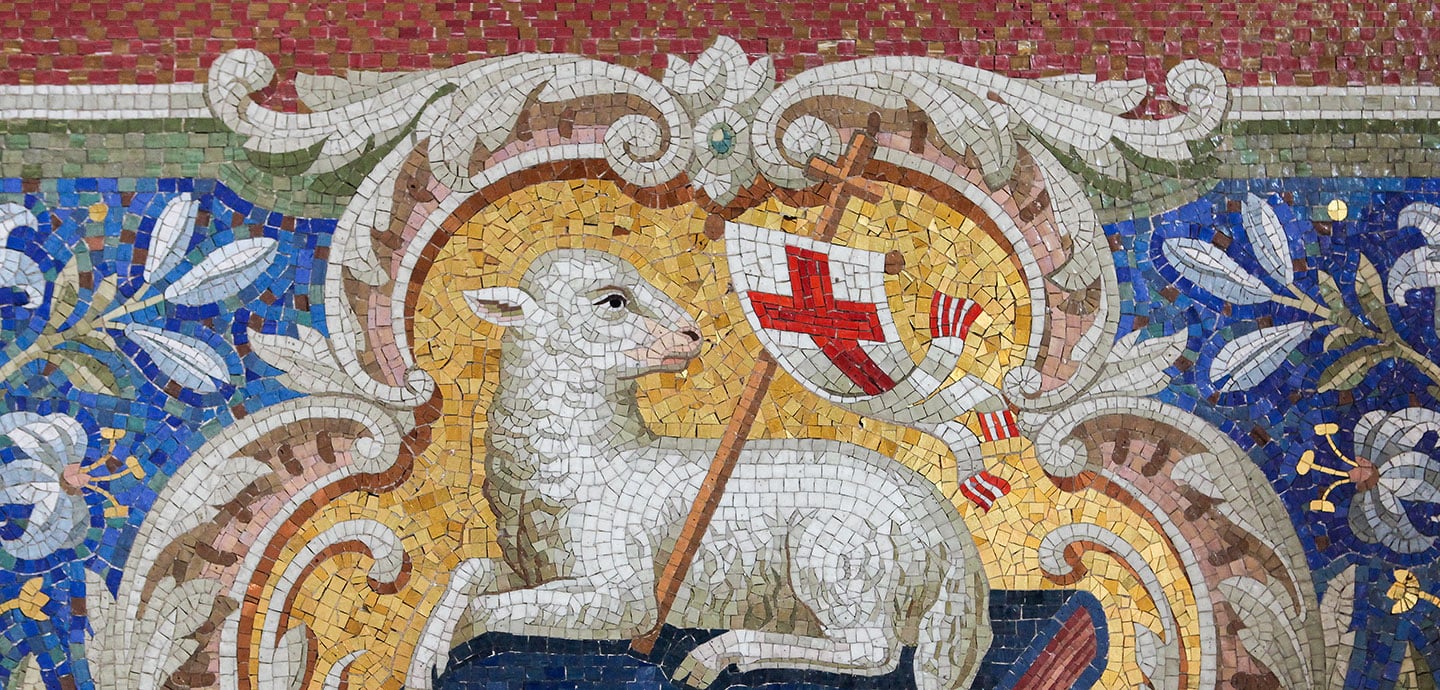English | Español
Rite of Christian Initiation of Adults
Rite of Christian Initiation of Adults (RCIA) is a journey through distinct spiritual phases of increasing maturity whereby one prepares to commit themselves to Jesus Christ and His Church through seeking the sacraments of initiation (Baptism, Confirmation and First Eucharist / First Holy Communion).

RCIA journey
-
Any Unbaptized person seeking to follow Christ in His Church by way of making preparations for Christian discipleship through Baptism, Confirmation and First Eucharist/First Holy Communion. Such a person, after a period of inquiry into the faith and initial conversion to Christ is called a Catechumen.
-
Any Baptized person from another Christian community seeking to become Catholic through making preparations for Confirmation and First Holy Communion. Such a person, after a period of inquiry into the faith, is called a Candidate.
-
Any Baptized Catholic looking to increase their devotion as a disciple of Jesus Christ through completing the other sacraments of initiation (Confirmation and/or First Holy Communion).
Catechesis for adults preparing for Confirmation follows the pattern recommended in the Rite of Christian Initiation of Adults. (National Directory for Catechesis, USCCB 2005, p.122)
What should RCIA look like?
The rite of initiation is… a spiritual journey… that varies according to the many forms of God’s grace and the free cooperation of the individuals (RCIA, Introduction #5).
This journey includes not only the periods for making inquiry and for maturing, but also the steps marking… progress, as they pass… or ascend to the next level (RCIA, Introduction #6).
RCIA periods and steps
What is known as RCIA is based on, and is an application of, the Catechumenal Model. Due to how grace works on nature, these periods of maturation are requisite toward drawing one into a closer union with Christ.
Click on the sections below to expand them and view more information.

Period of Evangelization and Precatechumenate
This entire period (of no set time or fixed duration) is set aside for evangelization so that the genuine will to follow Christ may mature. (RCIA #37)
During this period, those involved in forming the catechumens and candidates are to give a suitable explanation of the Gospel and give them help and attention so that with a purified and clearer intention they may cooperate with God’s grace. (RCIA #38)
In so doing, those in charge of RCIA formation prepare the catechumens and candidates for the first major liturgical step in the Rite. This step marks their progress and ascension to the next level of maturation.
- For the Unbaptized — Rite of Acceptance into the Order of Catechumens
- For the Baptized — Rite of Welcoming Baptized but previously uncatechized adults who are preparing for Confirmation and/or Eucharist or Reception into the Full Communion of the Catholic Church
The prerequisite for making this first step is that the beginnings of the spiritual life and the fundamentals of Christian teaching have taken root. Thus there must be evidence of the first faith that was conceived during the period of evangelization... and of an initial conversion and intention to change their lives. (RCIA #42)
Before the rite is celebrated, therefore, sufficient and necessary time, as required in each case, should be set aside to evaluate and, if necessary, to purify the candidates’ motives and dispositions. (RCIA #43)

Period of Catechumenate
The catechumenate is an extended period during which the catechumens and candidates are given suitable pastoral formation and guidance, aimed at training them in the Christian life. Suitable catechesis is gradual and complete in its coverage whereby it leads the catechumens and candidates not only to an appropriate acquaintance with dogmas and precepts but also to a profound sense of the mystery of salvation in which they desire to participate”. (RCIA #75)
The duration of the catechumenate will depend on the grace of God and on various circumstances. The time spent in the catechumenate should be long enough—several years if necessary in order for the conversion and faith of catechumens and candidates to become strong. (RCIA #76)
The instruction received during this period should be of a kind that while presenting Catholic teaching in its entirety also enlightens faith, directs the heart toward God, fosters participation in the liturgy, inspires apostolic activity, and nurtures a life completely in accord with the spirit of Christ. (RCIA #78)
In so doing, those in charge of RCIA formation prepare the catechumens and candidates for the second major liturgical step in the Rite. This step will mark their progress and ascension to the next level of maturation.
- For the Unbaptized — Rite of Election of Catechumens [hereafter referred to as the Elect until Easter].
- For the Baptized — Rite of Call to Continuing Conversion of Candidates who are preparing for Confirmation and/or Eucharist or Reception into the Full Communion of the Catholic Church.
This is if the baptized Candidate is at this particular level of readiness during Lent. It might be that the baptized Candidate is at this stage of readiness at some other point and ready to be received at some point other than Easter.
At this second step… the Church judges their state of readiness and decides on their advancement toward the sacraments of initiation. (RCIA #119)
Prior to the rite of election, the catechumens and candidates must have the intention to receive the sacraments of the Church. (RCIA #120)
Due to the fact that the bishop celebrant declares the Church’s approval of the catechumens and candidates in this rite, there should be a deliberation prior to its celebration to decide on the suitableness of the individual catechumens and candidates participation. (RCIA #122)

Purification and Enlightenment
This is a period of more intense spiritual preparation, consisting more in interior reflection than in catechetical instruction, and is intended to purify the minds and hearts of the elect and candidates (RCIA #139).
This phase constitutes the immediate preparation for the Sacraments of Initiation and reception into the Church, the third major liturgical step in one’s RCIA journey.
- For the Unbaptized — Easter Vigil
- For the Baptized — Easter Vigil or at any other time they are prepared to make the Profession of Faith and have made a good confession [firm purpose of amendment].
Profession of Faith: I believe and profess all that the holy Catholic Church believes, teaches, and proclaims to be revealed by God. (RCIA #491)
Reception of Baptized Christian into the Full Communion of the Catholic Church (RCIA #473-498)

Period of Postbaptismal Catechesis or Mystagogy
The third step of Christian initiation, the celebration of the sacraments, is followed by the final period, the period of postbaptismal catechesis or Mystagogy. (RCIA #244)
Since the distinctive spirit and power of the period of postbaptismal catechesis or mystagogy derive from the new, personal experience of the sacraments and of the community, its main setting is the so-called Masses for neophytes, that is, the Sunday Masses of the Easter season. (RCIA #247)
To close the period of postbaptismal catechesis, some sort of celebration should be held at the end of the Easter season near Pentecost Sunday. (RCIA #249)
After the immediate mystagogy or postbaptismal catechesis during the Easter season, the program for the neophytes should extend until the anniversary of Christian initiation, with at least monthly assemblies of the neophytes. (National Statutes for the Catechumenate #24)
Photo by Juan Guajardo
Contacts:

Laura Nelson
Director of Faith Formation
817-945-9351

Julie Kiehlbauch, MS
Executive Assistant
817-945-9358
The Diocese of Fort Worth is dedicated to a Safe Environment. We offer extensive and mandatory training for all employees and volunteers. Please contact the Safe Environment office if you need assistance or to report an abuse or concern.
Broken link or website issue?
